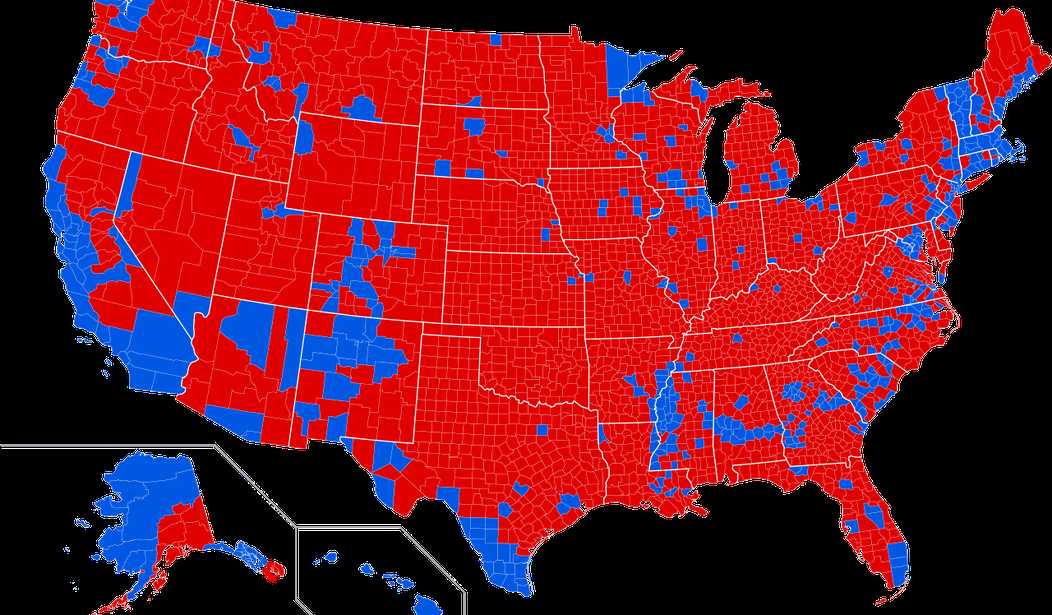Before 2016, Democrats convinced themselves that a “blue wave” was crashing over America. Immigrants, minorities, and women would give them a lock on the presidency. Identity politics would sway the popular vote and the Electoral College would go along with it, ushering in a new era of “progress” that none of those stodgy old conservatives could defeat.
After the rude awakening of November 8, 2016, the experts pushing this “Blue Wave” narrative have a new election orthodoxy. Researchers with the Public Religion Research Institute (PRRI), the Center for American Progress (CAP), the Bipartisan Policy Center, and the Brookings Institution analyzed long-term demographic trends and came to the conclusion that the only hope for Republicans to keep or regain the presidency is the Electoral College.
“The scenarios in this report suggest that there are paths for both parties to win the Electoral College in 2020 and beyond,” the researchers noted. Republicans can win by expanding their lead among whites without a college education, and Democrats will likely find success in pushing up minority turnout and in tearing these white votes without a college education away from the GOP.
“While Democrats appear to have the advantage in future popular vote contests, their success in the Electoral College will likely require some combination of intensifying their support among voters of color and improving their margins among white, particularly white non-college-educated, voters,” the researchers wrote. “This delicate balancing act will provide a challenge for the party that cannot be met by simply waiting for demographic change to reshape the electorate.”
The demographic “blue wave” is far from inevitable, at least through 2036, the study found.
Even so, Republicans do have a hard fight ahead. “Among the simulations examined, the greatest opportunity for Republicans to extend their 2016 victory model assumes an expansion of the already-substantial voting margin that the GOP has gained among white non-college-educated voters,” the authors noted. “When this margin is expanded by 10 points, Republicans win both the 2020 Electoral College and popular vote.”
Even under these favorable conditions, however, the GOP can “continue to win the Electoral College — though not the popular vote — through 2036, despite broadening diversity and other predicted changes across the country.”
The authors released these conclusions in the fourth annual “States of Change” report, published this past weekend. PRRI’s Robert Griffin, CAP’s Ruy Teixeira, and Brookings’s William H. Frey ran a series of simulations for presidential elections between 2020 and 2036.
Griffin, Teixeira, and Frey predicted that Republicans would win the Electoral College but not the popular vote in presidential races going forward. “This report finds quite a few future scenarios could mimic the result of the 2016 election — a Democratic in the popular vote with a Republican win in the electoral college,” they wrote.
Griffin, Teixeira, and Frey focused on three demographic changes: the rise of nonwhite voters (the 2016 voter base was 69 percent white, but that percentage is predicted to decrease to 67 in 2020 and 59 by 2036); the aging population (Americans 65 and older made up 21 percent of eligible voters in 2016, and that percent is predicted to increase to 22 in 2020 and 27 in 2036); and education levels (whites without college degrees took up 46 percent of eligible voters in 2016, and that percentage is expected to drop to 44 in 2020 and 37 in 2036).
Besides basic demographics, turnout plays a huge role in elections. African American voters who showed up in force to achieve Barack Obama’s re-election in 2012 did not share the same enthusiasm for Hillary Clinton in 2016.
If Democrats can field another energizing candidate like Obama in 2020 and the 2020 turnout mimics the 2012 election, the Democrat will win the popular vote by six percent and rack up 332 electoral votes — the same as Obama’s winning margin in 2012.
With turnout levels based on 2016, a Democrat will still win the popular vote and the Electoral College, because the 2016 election witnessed a large upswing in third-party voting. If the 2020 electorate looks like 2016 and fewer voters pick third parties, the Democrat will win the popular vote, but face a tie in the Electoral College.
In only two cases did Griffin, Teixeira, and Frey predict a Republican popular vote victory. This result would require a swing of 10 points toward the GOP among white non-college-educated voters or that same swing accompanied by a lowering of third party votes. In many cases, however, the authors found a Republican Electoral College win with a popular vote loss.
“The GOP has many roads to the presidency in 2020 even though demographic shifts appear to make a Democratic popular vote victory easier than ever to obtain. Even more interesting, some of these fruitful scenarios continue to produce Republican electoral vote triumphs in 2024 and beyond, despite mounting popular vote losses,” the authors reported.
After Barack Obama won the Electoral College in 2012, Democrats penned think pieces defending the Electoral College. When Trump won in 2016, they took to the New York Times and the Los Angeles Times and attacked it as antiquated. Last September, Hillary Clinton called for its abolition. A MoveOn.org petition has garnered over 700,000 signatures.
After the progressive movement achieved the direct election of senators, only the Supreme Court and the Electoral College restrain the federal government from unchecked rule by mere majorities. The Electoral College prevents large majorities of Californians from electing a president every four years. Thanks to this “antiquated” system, voters in less populous states across America still make an impact.
As President Trump declared in his speech at the Conservative Political Action Conference this year, winning the Electoral College is more difficult because it requires candidates to campaign across the country, as opposed to merely targeting a few more populous states.
President Trump defends the Electoral College: it's "much harder" than the popular vote, because you have to campaign across the country, and not just in a few big states. #FactCheck: That's true. @PJMedia_com @CPAC #CPAC2018 #tcot
— Tyler O'Neil (@Tyler2ONeil) February 23, 2018
Even so, the results of this study, along with the 2000 and 2016 elections, will likely encourage Democrats to clamor for the abolition of the Electoral College, and if Democrats were somehow to win the House and Senate this year — unlikely but possible — they could push for a legislative repeal of this longstanding institution.
Without the Electoral College, the “blue wave” is indeed a possibility. As tribalism further divides America, even the founders’ method to elect a president will become an increasingly polarizing issue. More than a few have attacked the Electoral College as racist. Expect these attacks to ramp up.









Join the conversation as a VIP Member